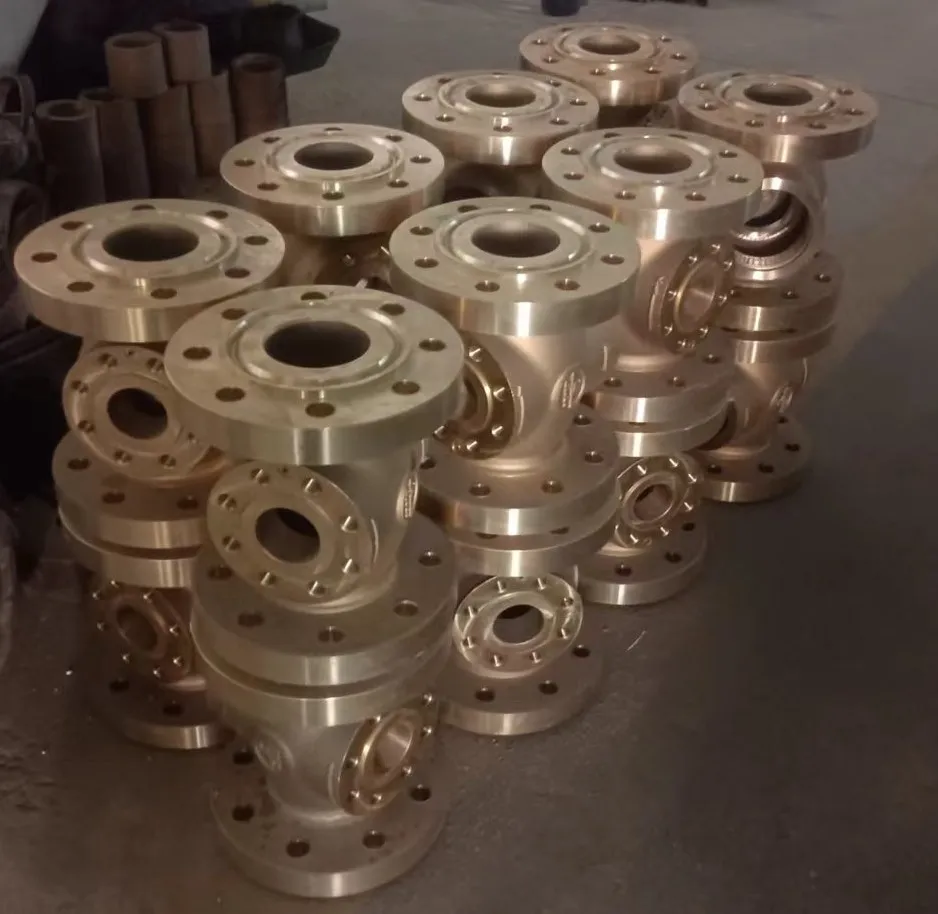Mobile:+86-311-808-126-83
Email:info@ydcastings.com
pressure vessel end caps
The Importance of Pressure Vessel End Caps in Manufacturing
Pressure vessels are built to hold gases or liquids at high pressures and temperatures. They are critical in various industries, including oil and gas, chemical processing, food and beverage, and pharmaceuticals. Among the essential components of a pressure vessel are the end caps, which play a vital role in maintaining the integrity and safety of the vessel.
Understanding Pressure Vessel End Caps
End caps are specially designed closures that seal the ends of a pressure vessel. They can be manufactured from various materials, including carbon steel, stainless steel, and exotic alloys, depending on the specific requirements of the vessel's application. The primary function of end caps is to ensure that the contents of the vessel remain contained under pressure while also facilitating safe access for maintenance and inspection.
Design and Manufacturing Considerations
The design of end caps must meet specific codes and standards, such as the American Society of Mechanical Engineers (ASME) Boiler and Pressure Vessel Code. This ensures that they can withstand the internal pressures without failure. The thickness of the end cap, the type of weld used, and the overall geometry are all crucial factors in ensuring that the end caps can safely contain high-pressure contents.
Manufacturers must also consider the physical and chemical properties of the fluids being contained. For instance, if the pressure vessel is used to store corrosive substances, the end caps must be made from resistant materials that prevent degradation over time. Similarly, in high-temperature environments, specific alloys with suitable thermal properties are needed.
Safety and Compliance
pressure vessel end caps

Safety is of paramount importance in the design and manufacture of pressure vessel end caps. Any failure can lead to catastrophic events, including explosions or leaks that may pose a threat to personnel and the environment. As such, rigorous testing and quality control protocols must be in place. This includes non-destructive testing methods such as ultrasonic testing and radiography to ensure there are no hidden defects in the welds or material.
Compliance with international safety standards cannot be overstated. Companies must adhere to local and international regulations to ensure that their pressure vessels and their components, including end caps, are safe for use. Regular inspections and maintenance also play a substantial role in extending the lifespan of pressure vessels, including ensuring that the end caps remain secure and effective.
Innovations in End Cap Design
Recent advancements in material science and engineering have led to innovations in end cap design. For example, the use of composite materials has gained attention due to their lightweight and high-strength characteristics. Additionally, 3D printing technology is starting to be adopted, allowing for more complex designs that can enhance the performance and safety of the end caps while also reducing production times.
Another emerging trend is the incorporation of smart technology into pressure vessel systems. End caps equipped with sensors can provide real-time data on pressure and temperature, allowing for proactive monitoring and maintenance. This technology not only increases safety but also enhances the efficiency of operations within industries relying on pressure vessels.
Conclusion
Pressure vessel end caps are essential components that ensure the safe operation of pressure vessels across various industries. Their design, manufacturing, and quality control are critical to preventing failures that could have severe consequences. As technology continues to evolve, innovations in end cap design will likely improve safety and efficiency further, paving the way for advancements in pressure vessel applications. Ultimately, understanding the significance of these seemingly simple components can help industries maintain safety standards and improve operational efficiency.
-
Understanding Metal Casting TechniquesNewsApr.02,2025
-
Understanding Exhaust Manifolds for Enhanced Engine PerformanceNewsApr.02,2025
-
The World of Metal FabricationNewsApr.02,2025
-
Key Components for Pump and Turbo EfficiencyNewsApr.02,2025
-
Essential Tools for Automotive Maintenance and RepairNewsApr.02,2025
-
Durable Valve Components for Effective Water ManagementNewsApr.02,2025











